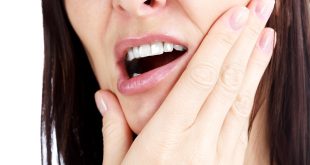Jaw pain after filling is one of the challenges that you might face post-dental treatment. While it’s unpleasant, it’s not uncommon to experience discomfort or soreness in your jaw after a dental procedure.
Understanding what to expect after a dental procedure can help you determine if something is amiss and take the necessary steps to protect your oral and overall health. Let’s explore why Jaw pain after filling happens and how you can address it.
Key Takeaways:
- A new filling can sometimes disrupt your bite, causing uneven pressure on your jaw
- Stretching and massaging the jaw muscles can relieve tension and improve mobility
- Medications like ibuprofen or acetaminophen can help reduce pain and inflammation
- Dehydration and caffeine can contribute to muscle tension and jaw discomfort

Understanding Jaw Pain After Filling
Jaw pain after dental work, such as a filling, is a relatively common issue that can stem from several causes. Here are some key reasons why your jaw might hurt after a filling and what you can do about it.
-
Recent Dental Procedure
Undergoing a dental procedure is one of the most common reasons for jaw pain. The process of getting a filling often requires keeping your mouth open for an extended period, which can leave your jaw muscles feeling sore or fatigued. This discomfort is temporary and should subside within a few days to a week. Be patient and allow your jaw muscles time to relax and recover naturally.
-
Misaligned Bite
A new filling can sometimes disrupt your bite, causing uneven pressure on your jaw. This imbalance can lead to muscle strain and jaw pain, especially during activities like chewing, talking, or drinking. Fortunately, your dentist can easily adjust the filling to restore proper alignment, quickly relieving discomfort.
-
Temporomandibular Joint (TMJ) Issues
If your jaw pain worsens instead of improving after a filling, it could indicate temporomandibular joint (TMJ) dysfunction. The TMJ connects your jaw to your skull, and issues with this joint can cause pain, stiffness, and difficulty moving your jaw. Severe or persistent pain is a critical sign of TMJ dysfunction. Your dentist can evaluate your symptoms and recommend appropriate treatments, such as lifestyle changes, jaw exercises, or oral appliances to alleviate the issue.
-
High Filling
Occasionally, a filling might be too high or uneven, leading to an unbalanced bite. This can place undue stress on your jaw joint, causing pain, tooth sensitivity, and even headaches. If you suspect a high filling is the culprit, contact your dentist. They can quickly adjust the filling to correct the alignment and resolve the discomfort.
-
Infection or Inflammation
In rare cases, jaw pain after a filling could signal an infection or inflammation in the tooth or surrounding tissue. This might occur if bacteria enter the tooth during the procedure (though this is uncommon) or if the tooth was already compromised before the filling was placed. If your jaw pain persists for more than a week or gradually worsens, it’s essential to see your dentist immediately for evaluation and treatment.
How to Relieve Tooth Pain after Filling?
The treatment for jaw pain after a dental filling depends on the cause of the discomfort. Here are some effective ways to relieve the pain:
- Over-the-counter Pain Relievers – Medications like ibuprofen or acetaminophen can help reduce pain and inflammation.
- Apply Cold or Warm Compresses – A cold pack can help with swelling, while a warm compress can relax tense jaw muscles.
- Rest Your Jaw – Avoid chewing hard or sticky foods that may put extra strain on your jaw.
- Correcting the Bite – If the filling is too high, your dentist can adjust it to ensure proper bite alignment.
- Gentle Jaw Exercises – Stretching and massaging the jaw muscles can relieve tension and improve mobility.
- Manage Teeth Grinding (Bruxism) – If grinding is causing pain, a mouthguard or stress-reduction techniques may help.
- Stay Hydrated and Avoid Caffeine – Dehydration and caffeine can contribute to muscle tension and jaw discomfort.
Conclusion
While jaw pain after a dental filling is usually temporary and manageable, it’s important to monitor your symptoms and seek professional advice if the discomfort persists or intensifies. By addressing the root cause, your dentist can help restore your comfort and protect your oral health.
Useful Resources:
Managing the Worst Day of Pain after Wisdom Tooth Extraction



